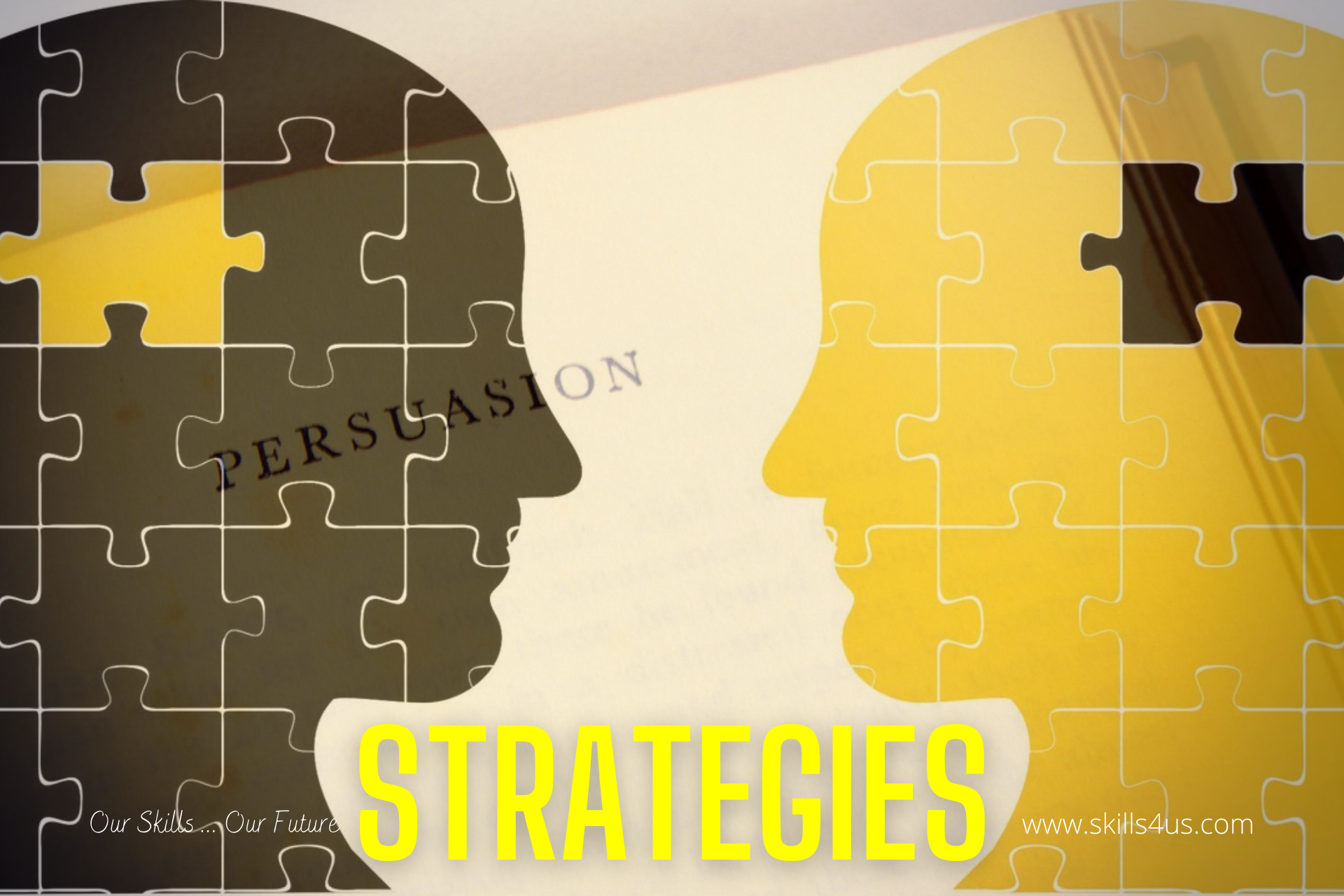
Good Persuasion Strategies Enable You To Advance Your Personal And Professional Life
In the professional world, the ability to persuade others is an essential skill to have. Note that persuasion is one of the best soft skills for employees because it increases the organization’s performance and enhances the person’s professional life, which makes this soft skill valuable on many levels. Adopting good persuasion strategies improves your ability to communicate and share ideas when thinking about being more persuasive personally and professionally.
Persuasion strategies
1. Focus on exchanging ideas and viewpoints
Focusing on sharing ideas and viewpoints can make others more receptive to your ideas and consider perspectives they didn’t have before. So it’s essential to focus on points of agreement, which indicates that you are open-minded, care about their interests, and are willing to make adjustments rather than imposing your ideas on them.
2. Understand the difference in viewpoints
When you talk to others and understand the diversity of viewpoints, you can adjust your behavior to suit their interests. As a result of this behavior on your part, you show respect and create an atmosphere of understanding, which makes the other party more open to reconsidering his point of view.
3. Use the names of those you talk to
People feel interested when you speak to them and refer to them by name. Therefore, to be convincing, you must make sure that you use the names of others every time you see them and speak to them.
4. Make sacrifices constantly
To be convincing, you must constantly make sacrifices supporting your viewpoint. Note that this will attract people in the long term. Moreover, being successful is better than being “right”.
5. Be cheerful and enthusiastic
If you want others to accept you and be convinced of your ideas, talk to them with a smiling face, and they will subconsciously return the favor and feel satisfied as a result. Moreover, you will be convincing if you have a genuine enthusiasm for your ideas and a smiling face.
6. Create a sense of need
Promoting an idea that could solve an existing need can help attract the other party’s attention. Moreover, the credibility of your suggestions and ideas creates a feeling of need, increasing your ability to persuade.
7. Use of word pictures
Using verbal images leads to drawing a mental image for the other party that links proper values and encourages his excitement or curiosity, which leads to positive reactions and influences his behavior. As a result, using descriptive verbal images or positive connotations gives life to your suggestions and ideas and makes them more persuasive.
8. Explain the benefits and advantages
When the other party realizes your ideas and suggestions will provide them with personal benefits and advantages, they will be more likely to believe them. Therefore, you must clarify the benefits and advantages that the other party will achieve with your suggestions, as this will affect their perception of the reasonableness and conviction of your ideas.
9. Arouse curiosity and attract attention
Asking a question or leaving an unfinished story during dialogue and discussion attracts the attention of others, arouses their curiosity, and influences their behavior, which may lead to convincing them of the ideas and suggestions you present.
10. Generate a sense of connection
Creating a sense of connection with others through eye contact, compliments, and acting sincerely creates an environment of friendliness and trust that can encourage them to listen to you and buy into your ideas.
11. Invest time, effort and practice
Put yourself in different situations through learning and development programs to improve your persuasion ability. Note that the extent of your success in persuasion depends entirely on the amount of time, effort, and practice you invest, as these are the keys to success.
12. Find a source of authority
People react instinctively to people in authority, so look for a source that gives you a specific authority, for example, a reliable source of information. Having power makes others listen to you and thus convince them.
13. Give time, and don’t be pushy
To build your ideas firmly and confidently and be convincing, focus on being confident and calm and not pushy or aggressive. Even if you think your idea is the best, give others time to think about it, and do not be opportunistic.
14. Show interest in listening and asking questions
By asking many questions, it would be best to show genuine interest in the other person’s needs. Plus, people like to know that you’re listening well, and something as simple as a clarifying question shows that you’re listening and care about what they’re saying. Therefore, you will be more able to persuade.
15. Set your expectations
If you propose an idea and set expectations for its implementation, the other party may be skeptical at first. But once he sees that the idea or initiative is in practice and works well, he will be more likely to believe you and be convinced in the future.
16. Speak with confidence
When trying to persuade others, reassuring them of your sincerity increases confidence. When you can speak confidently and present in a way that draws attention to you, you will succeed in presenting your ideas, and people will let down their guard and become more receptive and convinced.
17. Make a solid first impression
Most people decide whether they like you within the first seven seconds of a conversation. But by knowing this, you can leverage it to make considerable gains in your likability and persuasion.
18. Prepare ideas well
Prepare your thoughts well, define what you want to say, and ensure everything is clear before entering into any conversation. This way, you will be clear about the goal and how to achieve it, which makes you more convincing.
19. Be patient and take your time
When you rush others to buy into your ideas, they will be more committed to their opinions. If your position is strong, be patient, take it slow, and give them enough time. Time can often make a difference and lead to conviction.
20. Use data and evidence
You will have better chances of persuading others with ideas and proposals for which you have data, evidence, knowledge, or direct experience. So make sure you bring plenty of evidence for the ideas and proposals you want to prove.
21. Use positive body language
Pay close attention to your nonverbal communication. Positive body language attracts people and may make them more convinced and receptive to your ideas. Note that how you say something is no less important than what you want to say.
Persuasive people rely heavily on emotional intelligence to attract people to their thinking. So, use persuasion strategies; over time, others will support and buy into your ideas.



